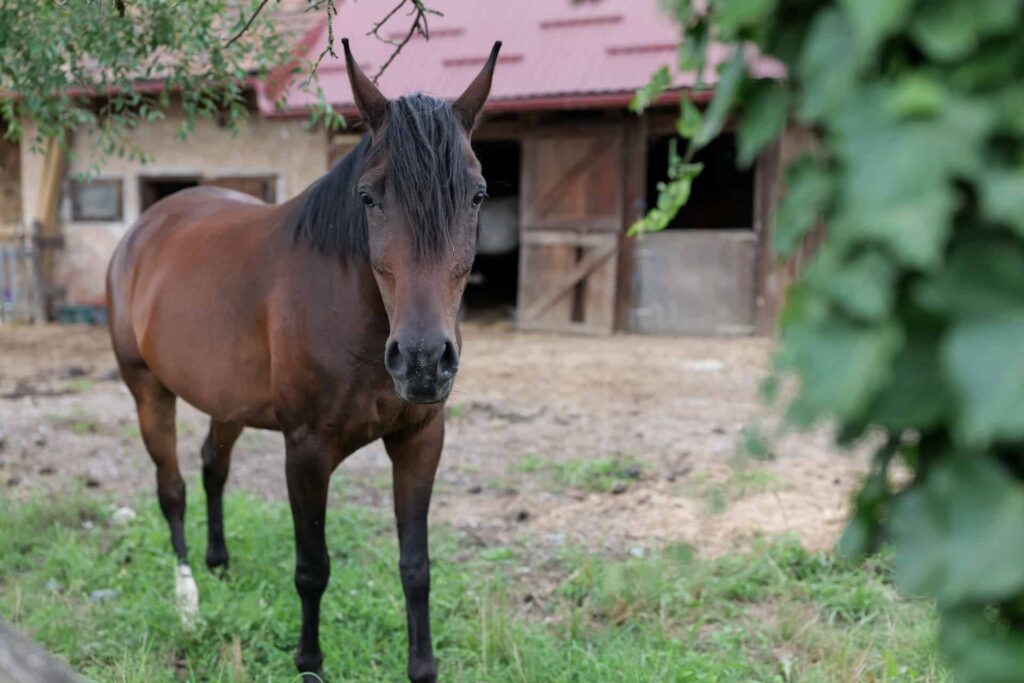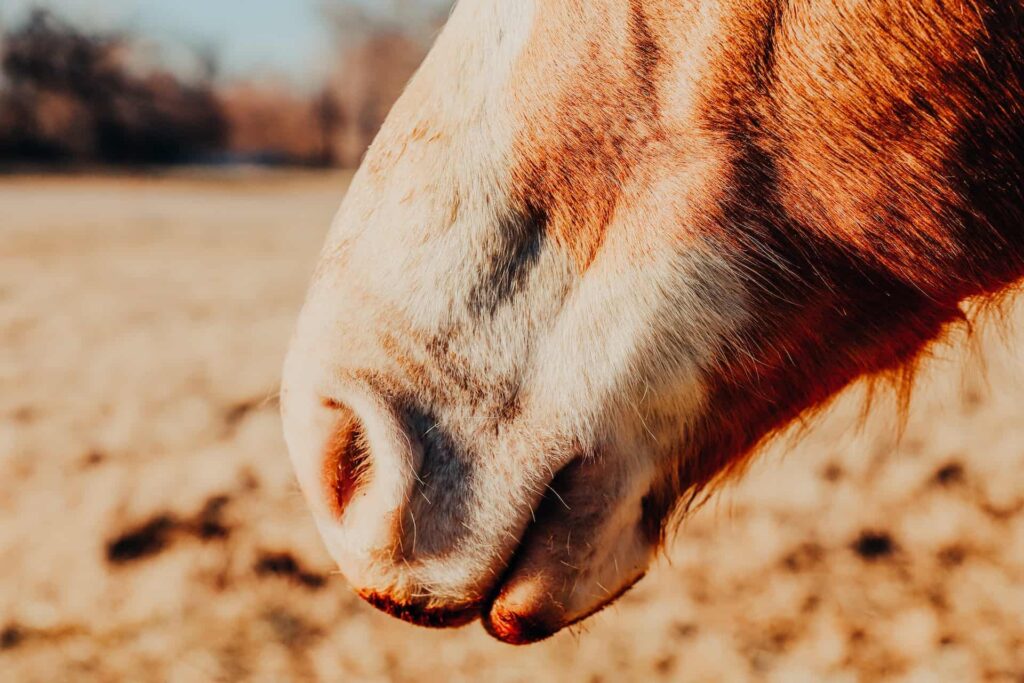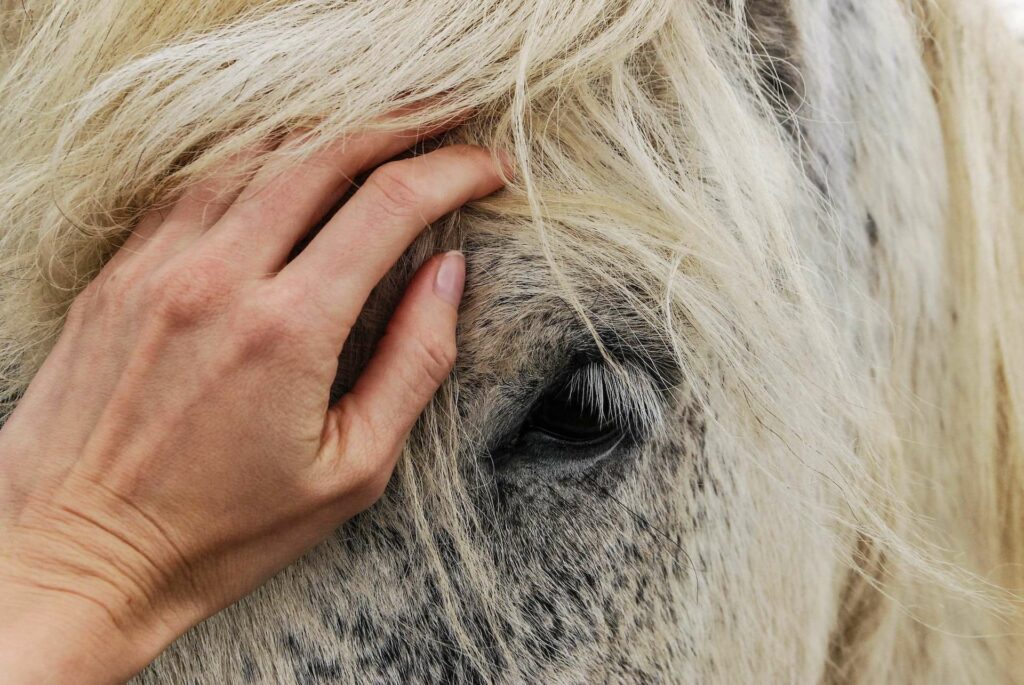Stress in horses is an important topic for owners, trainers, riders, and other caretakers to understand and address. Like humans, horses can experience stress from a variety of environmental and social factors, including training, feeding schedules, and interactions with other horses. Different horses may show stress in different ways, and some horses respond better to stressful situations than others.
Understanding horse stress begins with recognizing the signs and symptoms that may indicate a horse is feeling stressed. These can range from changes in behavior, such as moving away from a stimulus or tensing up, to physical signs like tooth grinding or activation of the “fight or flight” response. Being aware of these indicators and monitoring a horse’s behavior is crucial to identifying when stress may be occurring.
Managing and reducing stress in horses involves making adjustments to their environments, routines, and other aspects of their lives that may be causing undue stress. This can include changes to training methods, diet, socialization, and other factors. Veterinary professionals play a key role in assessing a horse’s health and well-being, providing recommendations and treatments to address stress if necessary.
Key Takeaways
- Recognizing behavioral and physical signs of stress in horses is crucial to promoting their well-being
- Adjusting environmental and lifestyle factors can help manage and reduce stress in horses
- Veterinary professionals play a key role in assessing and addressing stress in horses when needed
Understanding Horse Stress
Definition of Horse Stress
Horse stress refers to the emotional and physiological responses that horses experience when exposed to situations or stimuli that they perceive as threatening, challenging, or overwhelming. Similar to humans, horses are susceptible to stress, which can impact their overall well-being and performance. It is essential for horse owners and caretakers to recognize the signs of stress in their animals and take appropriate actions to mitigate it.
Signs and Symptoms
Horses exhibit various signs and symptoms when experiencing stress. Some key indicators of horse stress include:
- Weight loss: Chronically stressed horses may begin to lose weight due to various factors, such as heat stress, parasites, poor feed, and health problems.
- Stall walking and other vices: Nervous behaviors like stall walking, weaving, or cribbing can indicate stress in horses.
- Elevated pulse and respiration rates: When a horse is stressed, its pulse and respiration rates may increase dramatically and usually decrease if the source of stress is removed. However, it is crucial to consider whether the horse may be in pain or suffering from an illness before attributing these changes to stress.
To manage horse stress effectively, it is crucial to implement good care and management practices. Providing familiar foods with a forage-based diet, regular but not excessive training and proper training environments can help reduce stress in horses. By understanding and addressing the signs and symptoms of stress, horse owners and caretakers can ensure the health and happiness of their equine companions.
Causes of Horse Stress
Environmental Causes
Horses can experience stress due to various environmental factors. These can include changes in weather, alterations in their routine or living conditions, and interactions with other horses. For instance, a new stall or a differing feeding schedule can cause stress in some horses. Similarly, sudden changes in temperature or weather conditions can make a horse uncomfortable and induce stress.
Another contributing factor is the presence of a stressed handler. Horses are sensitive animals, and they can easily pick up on the emotions of the people around them. If their handler is stressed or anxious, it is likely to have a negative impact on the horse’s stress levels as well.
Health-Related Causes
Health issues can also play a significant role in causing stress in horses. Gastric ulcers, colic, and a weakened immune system are some of the health problems that can result in erratic behavior and other signs of stress.
In addition, acute pain, such as the muscle spasm associated with colic, can cause stress in horses. Moreover, changes in a horse’s diet, injuries, or other physical stresses can impact their ability to cope with stress, leading to increased anxiety and discomfort. (source)
Horse stress can stem from a wide variety of environmental and health-related factors. It is essential for horse owners to be aware of these potential causes and to monitor their horses for signs of stress, in order to ensure their well-being and overall health.
Impacts of Stress on Horses
Physical Impacts
Stress can have various physical effects on horses, including an elevated pulse and sweating, both of which are common signs of discomfort and anxiety. This stress response can also lead to the release of catecholamines such as epinephrine, which can have a negative impact on the animal’s overall health.
Long-term stress can also result in the production of reactive oxygen species (ROS), which contribute to oxidative damage in the horse’s body. While the body has a natural defense system in the form of antioxidants like vitamin E and vitamin C, excessive stress can cause an imbalance, leading to potential health issues for the horse.
Managing and Reducing Horse Stress
Stable Management
Proper stable management is essential for keeping your horse stress-free. Providing a clean, comfortable, and safe environment can significantly reduce anxiety levels in your horse. Ensure your horse has access to fresh water, clean hay, and a well-ventilated stable. Horses are social animals, so whenever possible, allow them to interact with stablemates. Regularly groom your horse, as grooming is not only essential for maintaining their coat condition but also serves as a bonding activity, helping to calm them down.
Training Techniques
Employing low-stress training techniques can minimize stress and improve the horse’s overall well-being. Positive reinforcement is beneficial in reducing anxiety and encouraging good behavior. Rewarding your horse with praise, treats, or physical touch when they perform correctly can strengthen the bond between you and your horse.
It’s crucial to introduce new experiences and environments to your horse gradually to avoid overwhelming them. Introduce novel objects, sounds, or training exercises slowly, allowing the horse to get accustomed to them at their own pace. Consistency in training can also help alleviate stress by providing a predictable routine for your horse.
Managing and reducing horse stress involves proper stable management and adopting constructive, low-stress training techniques. By incorporating these practices into your horse care routine, you can create a calmer and happier environment for your equine companion.
Role of Veterinary Professionals
Veterinary professionals play a vital role in preventing, recognizing, and resolving distress and chronic stress in horses. They are instrumental in identifying and treating pain, as well as providing support and guidance to horse owners in understanding their animals’ behavior and needs.
One critical aspect of a veterinary professional’s role is understanding and addressing innate equine behavior and body language to minimize stress during veterinary visits. By educating themselves on equine behavior, veterinary professionals can identify signs of fear, anxiety, and stress and take appropriate measures to alleviate their horse’s discomfort.
Another significant responsibility of veterinary professionals is promoting animal welfare by implementing best practices in handling and care. This can include teaching horse owners how to recognize signs of stress in their animals and providing recommendations on environmental enrichment, appropriate exercise, and social needs.
Veterinary professionals can also play a crucial role in managing stress among team members within their practice. By fostering a supportive and understanding work environment, they can help prevent potential negative impacts on their colleagues’ mental health, ultimately resulting in improved patient care.
Vets hold a key position in addressing and reducing stress in equines by understanding their behavior, advocating for their welfare, and fostering a positive work environment within their practice. Their expertise and commitment to providing the best care for horses help promote healthier, happier lives for both animals and their human counterparts.
Frequently Asked Questions
What are common signs of stress in horses?
Stress in horses can manifest in various ways such as erratic behavior, changes in social interactions, yawning, tooth grinding, trembling, sweating, elevated pulse, and stereotypic behaviors (like cribbing or weaving). It is important to observe a horse’s body language to identify signs of stress.
How can you relieve stress in horses?
To relieve stress in horses, you can take measures such as providing consistent routines, ensuring proper nutrition, offering regular exercise, and creating a comfortable living environment. Alternatives like the use of supplements and calming methods may also help to reduce their stress levels source.
What factors cause stress in horses?
Horses might experience stress due to factors such as changes in their environment, trailering and traveling, poor nutrition, irregular feeding times, variations in climate, and illness source. Social interactions and changes in their routine can also cause stress.
What is the connection between stress and colic in horses?
Stress in horses can contribute to the development of colic, as it may affect their digestive system and lead to gastric ulcers or induce erratic feeding behavior source. This may disrupt their normal gut function and result in colic symptoms.
How to treat anxiety in horses?
Treating anxiety in horses often involves identifying and addressing the root causes of stress. This may include improving the horse’s living conditions, creating a stable routine for them, ensuring proper nutrition, and providing comforting interaction with both humans and other horses source. In some cases, the use of calming aids or supplements may be beneficial.
What are the best calming methods for nervous horses?
The best calming methods for nervous horses include creating a calm environment, offering consistent daily routines, ensuring proper nutrition and exercise, and providing positive reinforcement during training sessions source. Building a trust-based relationship and allowing the horse to feel secure and relaxed will help them cope with stress and anxiety more effectively.
Last Updated on September 28, 2023 by Nate Dewsbury



